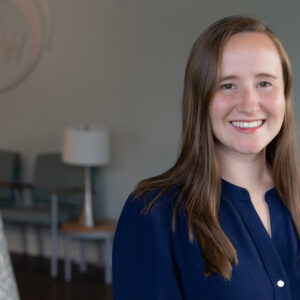Dr. Liz Pinkerton, an OB/GYN and former sexual assault and domestic violence crisis hotline volunteer, shares insights on sexual assault and the immediate and longer-term steps survivors and loved ones can take towards healing.
I would be remiss in starting this discussion without a moment to recognize the gravity of this subject. While sexual assault is an important topic, it is also an intensely personal one that can provoke powerful reactions. One in four women report that they have been survivors of attempted or completed rape during their lifetime – an estimated 23 million women in the United States. My goal is to approach this discussion with compassion, but I understand that this subject matter may be triggering to those readers who may have suffered, or who had a close family member or friend suffer, a sexual assault.
What is considered sexual assault?
Sexual assault encompasses any type of sexual contact or behavior that occurs without the explicit consent of the recipient. This includes psychological coercion or taking advantage of someone who is under duress, incapacitated, or unable to make decisions.
What is the difference between rape and sexual assault?
Rape is one type of sexual assault. In the case of rape, penetration is the form of sexual contact that occurs without consent. Sexual assault also includes other nonconsensual acts such as unwanted sexual touching.
Legal definitions for rape and sexual assault vary by state. The Rape, Abuse & Incest National Network has a website where you can learn more about the laws in your state, including how age can be a factor in what is considered sexual assault vs. rape. Go to rainn.org/policy to learn what is the definition of sexual assault in Virginia and other states.
What immediate steps should a person take if they have been sexually assaulted?
If you or someone you know is sexually assaulted, the first step is to find safety. This can involve calling the police, a trusted friend or family member, or a crisis hotline such as the National Sexual Assault Crisis Hotline: 1-800-656-HOPE [4673]. If immediate medical attention is required, call 9-1-1.
Even if immediate medical attention is not required, serious consideration should be given to going to an emergency department. In an emergency department, the survivor can receive medical assessment and treatment as well as prevention of pregnancy and sexually transmitted infections. After the initial evaluation, it is important to follow up with your healthcare provider, as repeat testing for HIV, Hepatitis B, and Hepatitis C are recommended at specific intervals to ensure that an infection has not been contracted.
A survivor can also choose whether or not to undergo a separate sexual assault forensic exam (SAFE) while in the emergency department. A SAFE is an in-depth examination and collection of evidence that can be utilized during a court case. It is important to remember: a SAFE can only be performed within 72 hours of an assault; however, having the exam does NOT mean that a survivor has to report the assault. SAFE kits are stored between 2 years (if the kit is collected anonymously) and 10 years in the state of Virginia.
There are also alternative places to undergo a SAFE exam if going to the emergency department is not preferred. Survivors can find a local service provider and get additional resources at RAINN.org.
What are the long-term effects of sexual assault?
While a lot of focus is placed on the interventions available immediately after a sexual assault, it is also important to remember that such a traumatic experience often comes with long-term effects. Survivors are more likely to experience physical symptoms such as chronic pelvic pain and fibromyalgia. Do not hesitate to discuss questions or concerns with your OB/GYN provider. Learn more in Dr. Lawson’s blog post, How a Gynecologist can Provide Support for Sexual Assault Survivors.
Survivors of sexual assault often experience emotional and mental health effects as well, such as post-traumatic stress disorder, depression, or anxiety. Sometimes it can be helpful to consult a mental health professional to help both the mind and the body process the trauma and heal.
How to respond if a friend or family member tells you they have been sexually assaulted
If someone you know discloses to you that they have been sexually assaulted, the most important thing to do is listen. It is a huge act of trust to share something so intensely personal and painful. Be sure to thank them for sharing, offer supportive reassurance, and remind them this event was not their fault. Do not interrupt, minimize the experience, or press for more details than the survivor wants to share. I also encourage the use of the term ‘survivor’ instead of ‘victim,’ to help empower those who have suffered an assault.
A message for survivors: You are not a burden
If there was one piece of advice I could close with, as an OB/GYN and a prior crisis hotline volunteer: don’t be afraid to lean on your friends and family. Too often I have conversations where a survivor has been bottling up their trauma because they don’t want to burden anyone. However, when asked what they would want a loved one to do in a similar situation, the survivor doesn’t hesitate to say that they would want their friend to share their experience so that love and support could be provided.
Please remember: you are not a burden – you are a loved one!
If you or anyone you know is suffering from sexual violence, you can reach out to the National Sexual Assault Hotline at 1-800-856-HOPE (4673) or their online chat. You can also find shelter, resources, and help navigating a safe way out of your situation at the James House Shelter in Prince George or Safe Harbor Shelter in Richmond.
